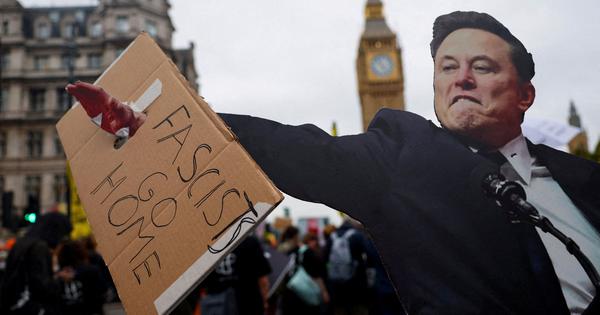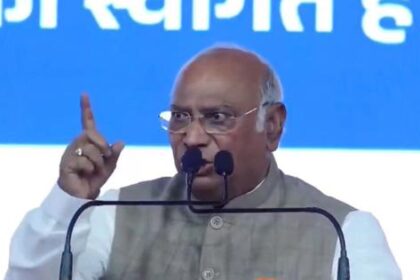The intersection of wealth, ideology, and public discourse poses challenges for democracies worldwide.
The billionaire owner of X, formerly known as Twitter, has created a complex relationship between social media and democratic politics. His platform generates substantial profits from polarizing public discourse while also playing a crucial role in political communication. This duality suggests an economic incentive for Musk to continue his involvement in political matters.
In recent events, Musk has made headlines for participating in far-right rallies and making controversial statements. For instance, during a livestream at a rally in London, he called for the “dissolution” of the British parliament and linked immigration to violence, urging protesters to either “fight back” or “die.” This is not an isolated incident; earlier in 2025, he joined a campaign event for the German far-right party Alternative for Germany (AfD), declaring them the “best hope for the future of Germany.” Such actions have led some to view Musk as a figurehead for the European far-right.
His acquisition of X in 2022 was framed as a move to promote “free speech,” thrusting him into the ongoing culture wars that are currently dividing political landscapes in both the United States and Europe. This involvement raises concerns about the implications for democratic politics, particularly given Musk’s wealth and influence over a significant share of public discourse.
The relationship between social media companies and democratic politics is increasingly fraught. The advertisement-based revenue model of these platforms monetizes user data generated through interactions. Every click and engagement with a post produces valuable information, which social media companies sell to advertisers. This includes not only commercial brands but also political entities, governments, and various organizations, all of which are willing to pay for targeted advertising on these platforms.
Studies have demonstrated that social media can exacerbate political polarization during critical moments, such as Brexit. Furthermore, it can undermine democratic discourse by enabling online abuse that marginalizes already vulnerable groups. Minority women, girls, and LGBTQ+ individuals are often the targets of such attacks, which can stifle their participation in public debate.
In response to this trend, companies like Meta have also shifted towards a more right-leaning interpretation of “free speech,” including the dismantling of third-party fact-checking programs designed to combat misinformation. This shift complicates the landscape for politicians in Europe who are grappling with how to address Musk’s destabilizing comments and actions.
The political relationship between governments and tech leaders like Musk is complex. While Musk expresses frustration with certain democratic processes, he is simultaneously involved in developing AI technologies that many nations view as vital for economic progress. This dynamic creates a peculiar scenario in which Musk’s provocative statements generate headlines, stimulate public debate on his platform, and contribute to his financial success through user data.
As this relationship evolves, democratic societies must engage in more focused discussions about minimizing the incentives that lead to destabilizing political behavior by social media leaders. The challenge lies in aligning the principles of free speech with the requirements of democratic governance in an era where the power of social media cannot be underestimated.








